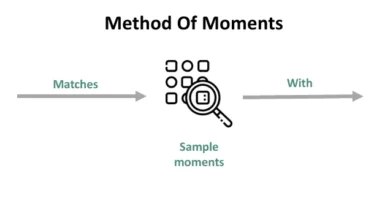Dentiloquent: Understanding the Rare Word “Speaking Through Teeth”

English is full of fascinating, sometimes obscure, words that capture nuances we rarely describe. One such gem is dentiloquent—a term that literally means “speaking through the teeth.” Though not widely used, this word is rich with imagery and etymological intrigue. Here’s a deep dive into what dentilo quent means, where it comes from, and how it can enrich your vocabulary—whether you’re a word nerd, writer, or just love discovering new expressions.
1. What Does Dentiloquent Mean?
Dentiloquent is defined as speaking through one’s teeth, often implying a restrained, tense, or intense mode of speech. The image it conjures is someone almost gritting each word—almost visibly restrained or withholding full expression yet continuing to talk.
Though an unusual word, it captures a very specific tone or emotion—whether it be anger, sarcasm, or controlled calm—making it a useful term for descriptive writing or nuanced dialogue.
2. Etymology: Unpacking the Roots of Dentiloquent
The construction of dentiloquent is a fascinating mix of Latin roots:
-
“Denti” stems from Latin dens, meaning “tooth.”
-
“Loquent” comes from loqui, meaning “to speak.”
Combined, they form the word for speaking with teeth, metaphorically capturing speech that is forcibly restrained or biting. This insight into word formation makes dentilo quent a window into how English creatively borrows and blends Latin components.
3. Why Dentiloquent Is Not Just a Dictionary Curiosity
While you might not encounter dentiloquent in everyday conversation, it holds intriguing potential for:
-
Creative Writing — Use it to vividly describe a character who speaks through clenched teeth, hinting at suppressed anger or tension.
-
Poetry and Dialogue — It adds depth to emotional exchanges, heavier with subtext than any simple adverb could convey.
-
Linguistic Exploration — For lovers of rare or archaic words, it offers aesthetic value and a fun linguistic puzzle.
Its obscurity is actually a strength—when used sparingly, dentilo quent stands out precisely because it’s so unexpected.
4. Dentiloquent vs Similar Speech Descriptors
Here’s how dentiloquent compares to more familiar terms:
-
Angry or harsh speech: These describe tone but not physical delivery.
-
Hissing or whispering: Related to volume or style, but not the feel of words cut through gritted teeth.
-
Controlled or restrained tone: Broad descriptors that lack the physical imagery of dentilo quent.
-
Snappy or clipped: Emphasize brevity but not the physical tension captured by speaking through teeth.
In short, dentiloquent uniquely merges physical posture with emotional state, offering a sharper image than broader terms.
5. Examples of Dentiloquent in Use
Though rare, dentiloquent has found its way into niche vocabulary lists and test prep materials:
-
In some exam questions, it’s presented as a one-word substitution for “speaking with reference to teeth,” distinguishing it from unrelated terms like melliloquent or fatiloquent.
-
Vocabulary enthusiasts on blogs and etymology sites also admire its pointed imagery—describing dialogues where the speaker seems physically, emotionally restrained yet visibly expressive.
Even if it’s not mainstream, dentilo quent thrives in word-loving circles where precision and originality matter.
6. Incorporating Dentiloquent in Your Vocabulary
If you’d like to use dentiloquent effectively, here’s how:
-
In Writing:
-
He spoke dentiloquent words, each syllable a reluctant confession.
-
Her tone was dentilo quent, revealing anger beneath a calm facade.
-
-
In Reading:
-
Look for emotionally charged scenes—arguments, resentments, or secrets—and imagine how dentilo quent could describe delivery.
-
-
In Speech:
-
Mention it as a fun, descriptive word for constrained dialogue: “She answered dentiloquely, through gritted teeth.”
-
When used sparingly and in the right context, dentilo quent becomes a literary flourish, not just an obscure curiosity.
Conclusion: Why Dentiloquent Deserves a Place in Your Lexicon
Though rare, dentiloquent is a powerful and evocative term:
-
It conveys emotion and physicality—speech that’s as much body posture as tone.
-
Its Latin roots make it relatable and understandable once unpacked.
-
It offers creative value in both writing and conversation—like a hidden gem.
Whether you’re enriching your vocabulary or crafting memorable characters, dentilo quent offers precision and atmosphere no common alternative can match. Next time dialogue feels underwhelming, consider making it dentilo quent.




